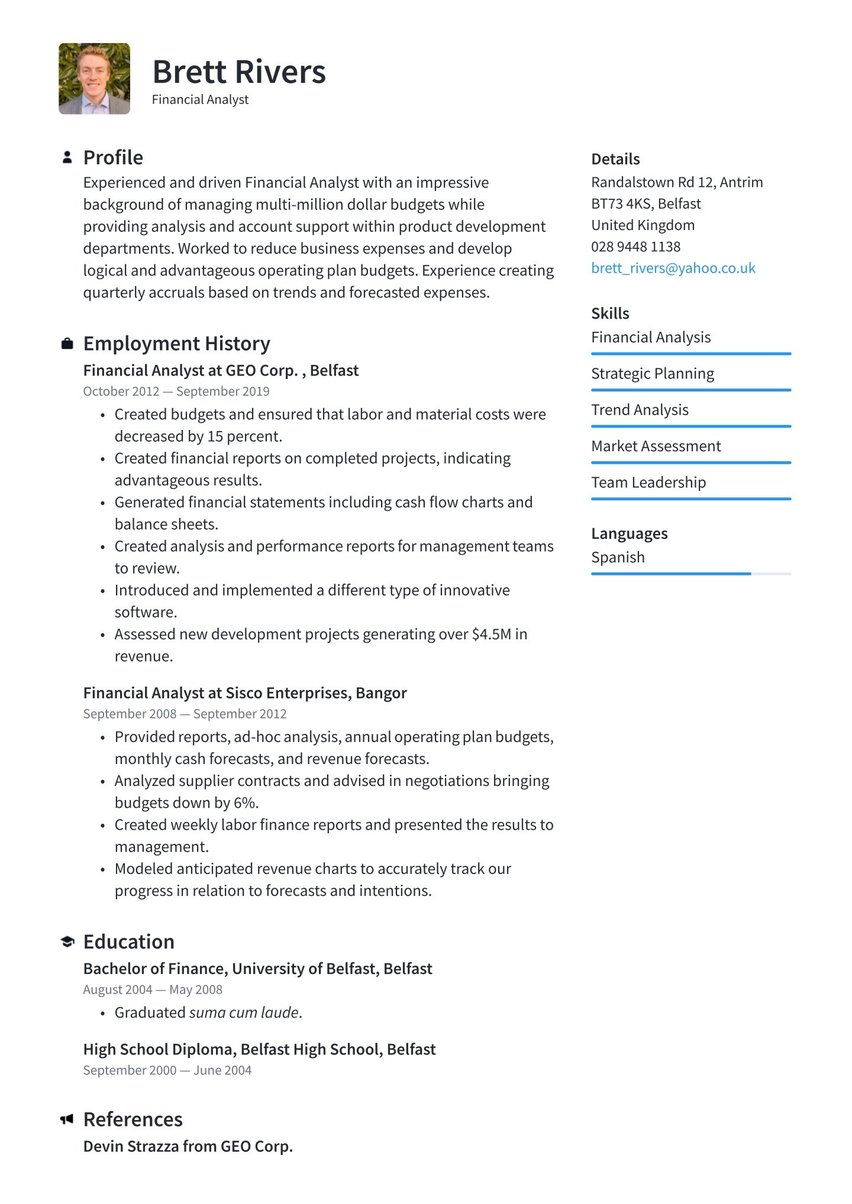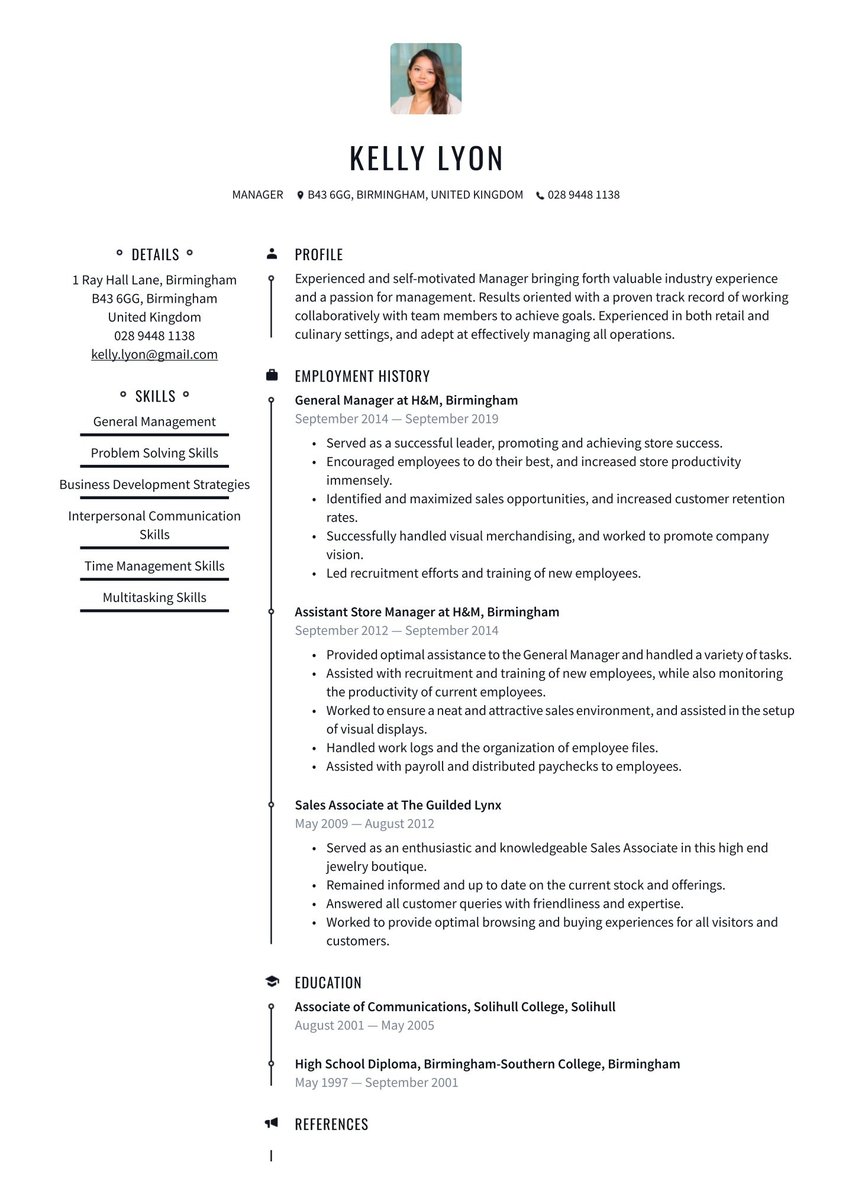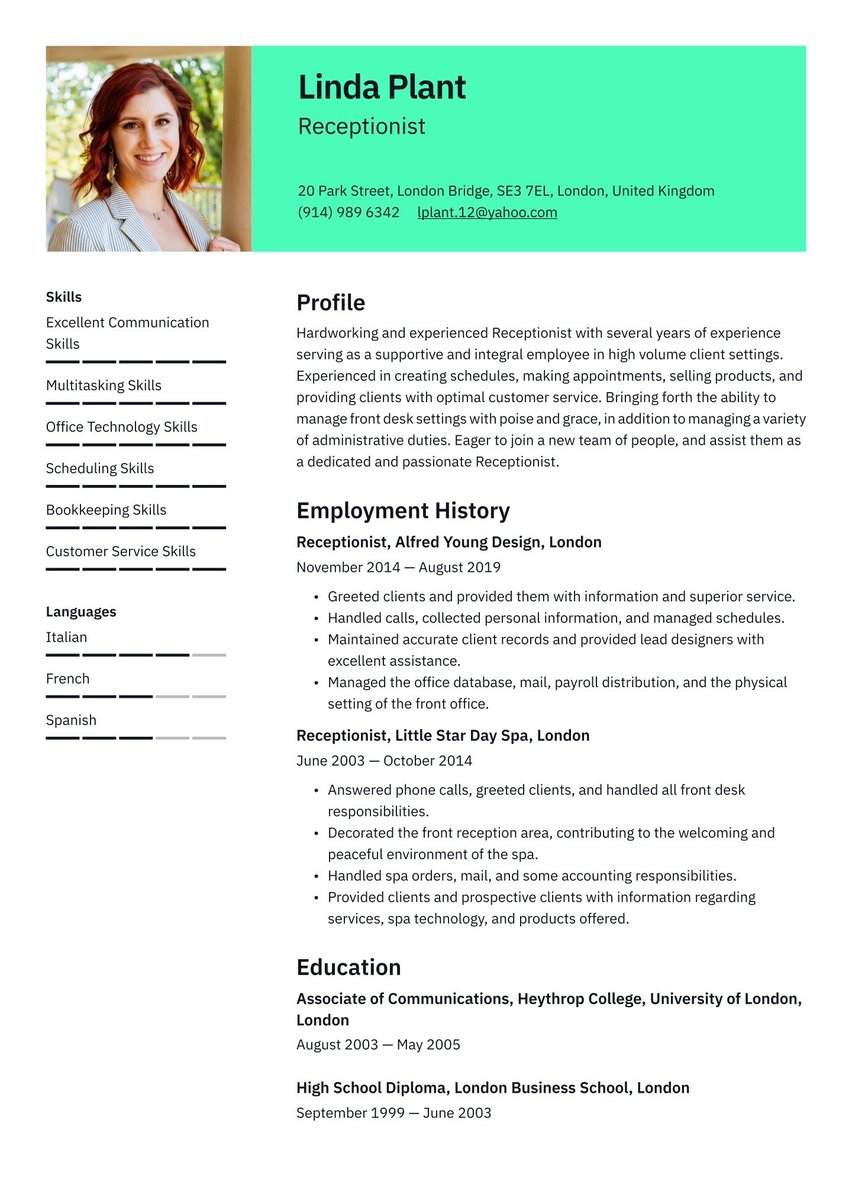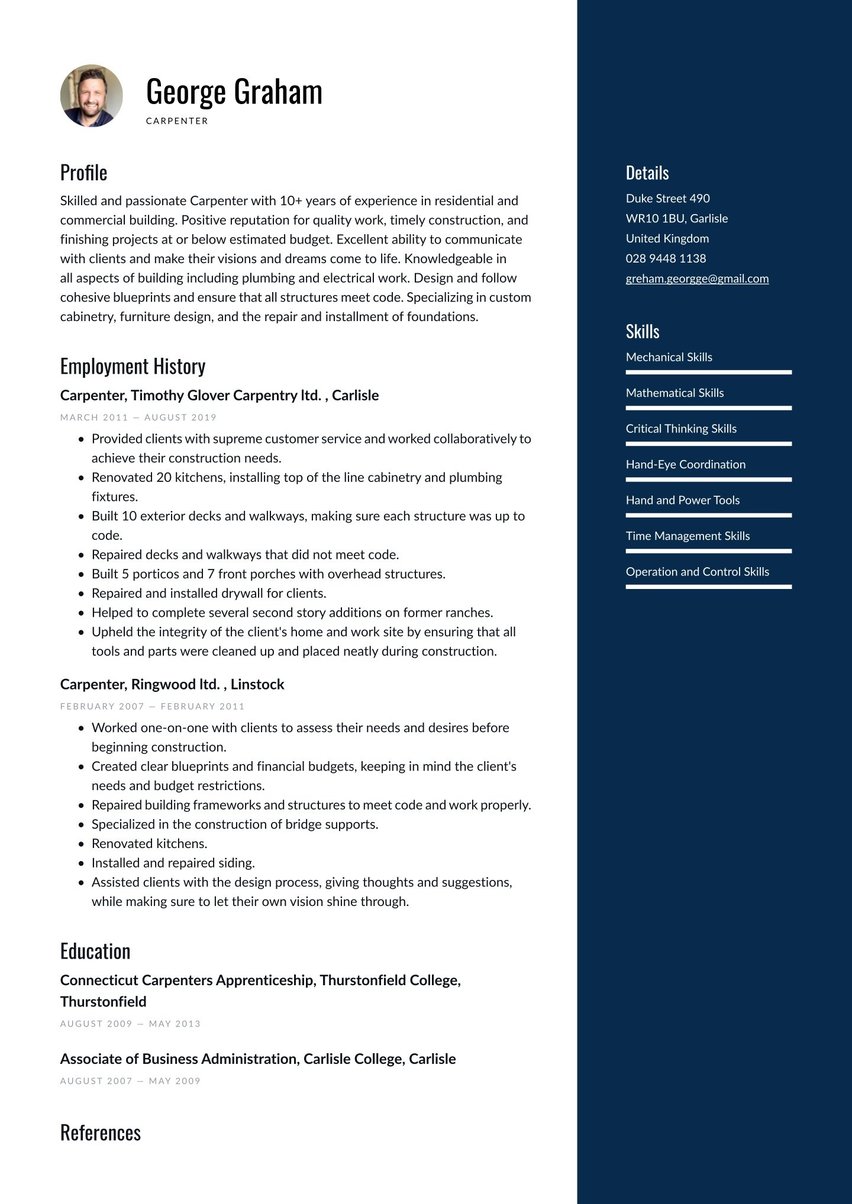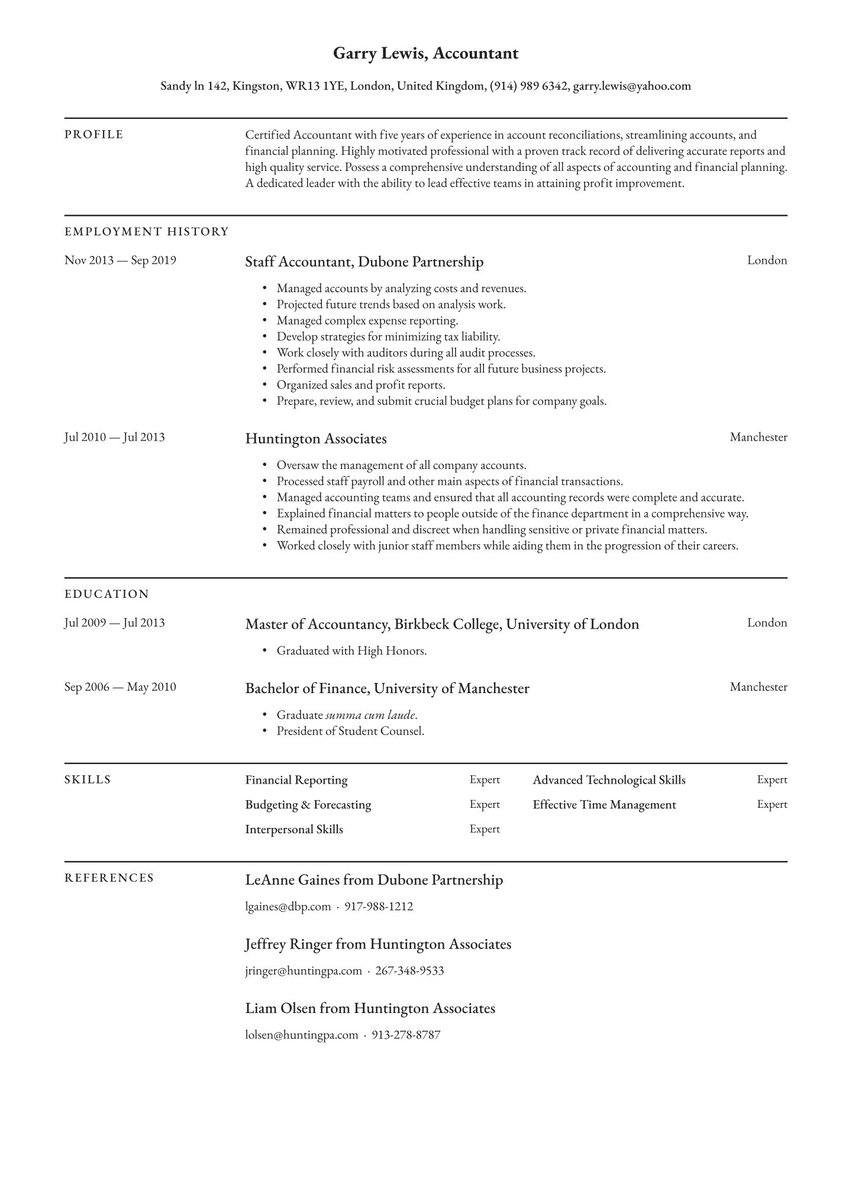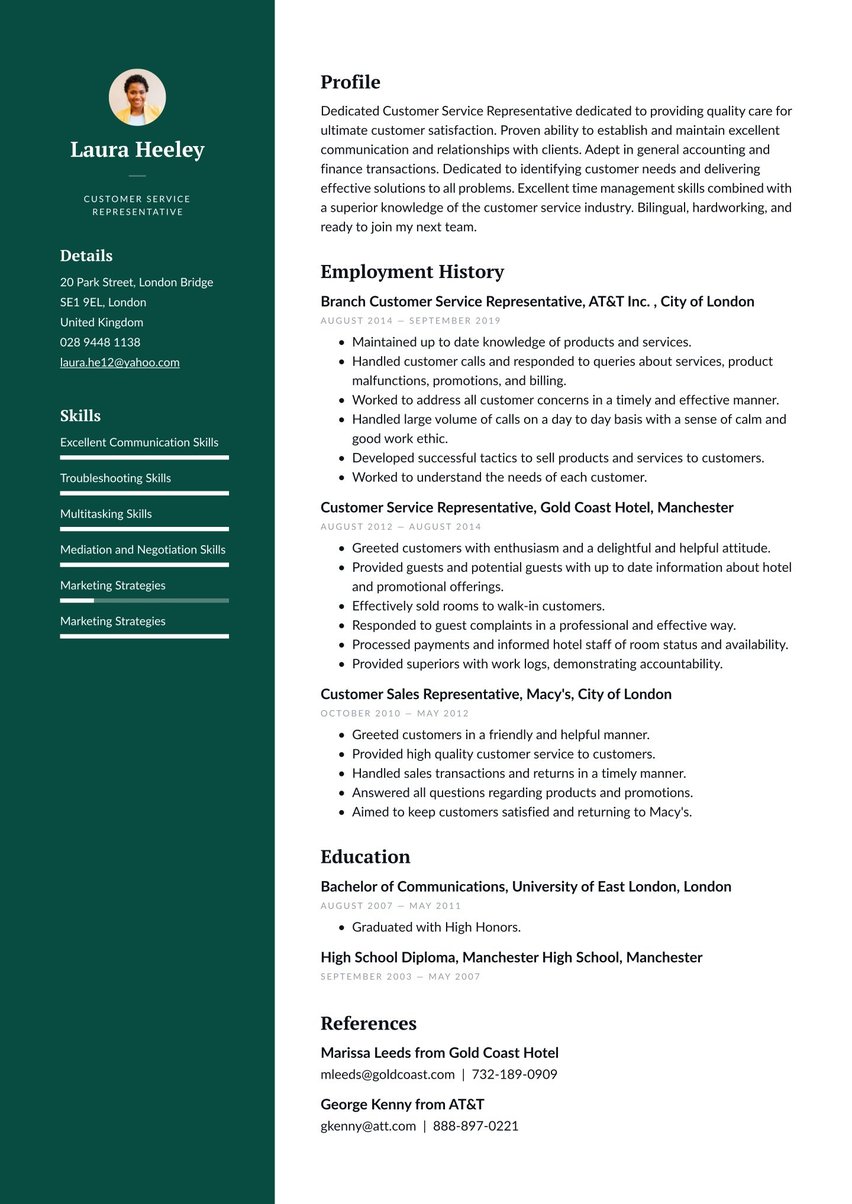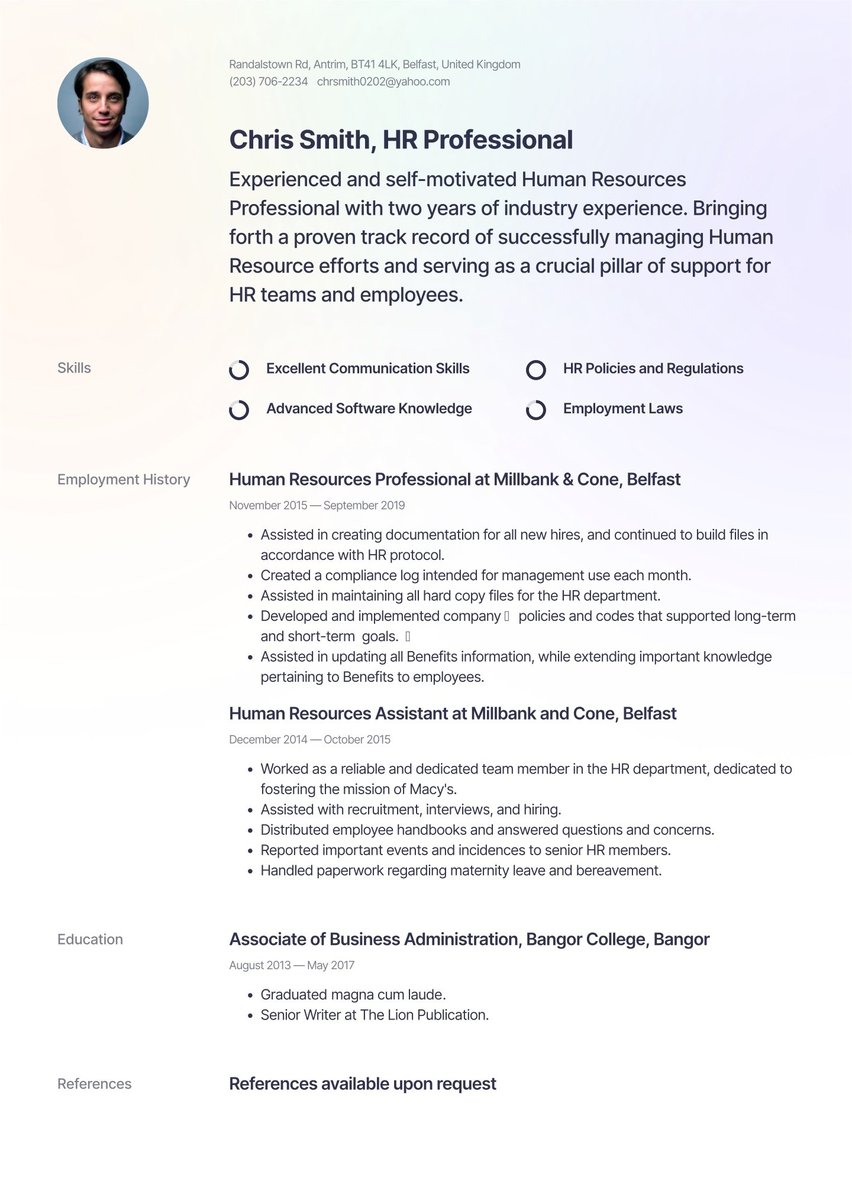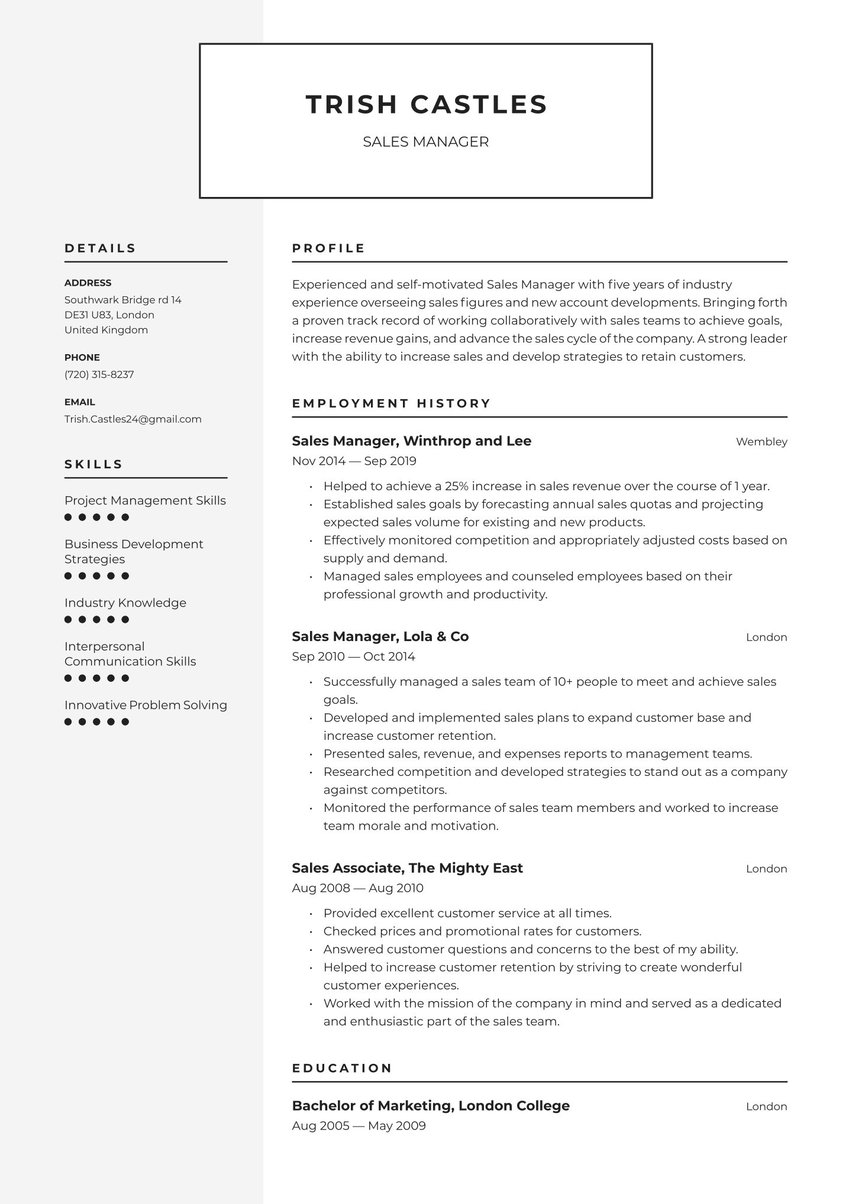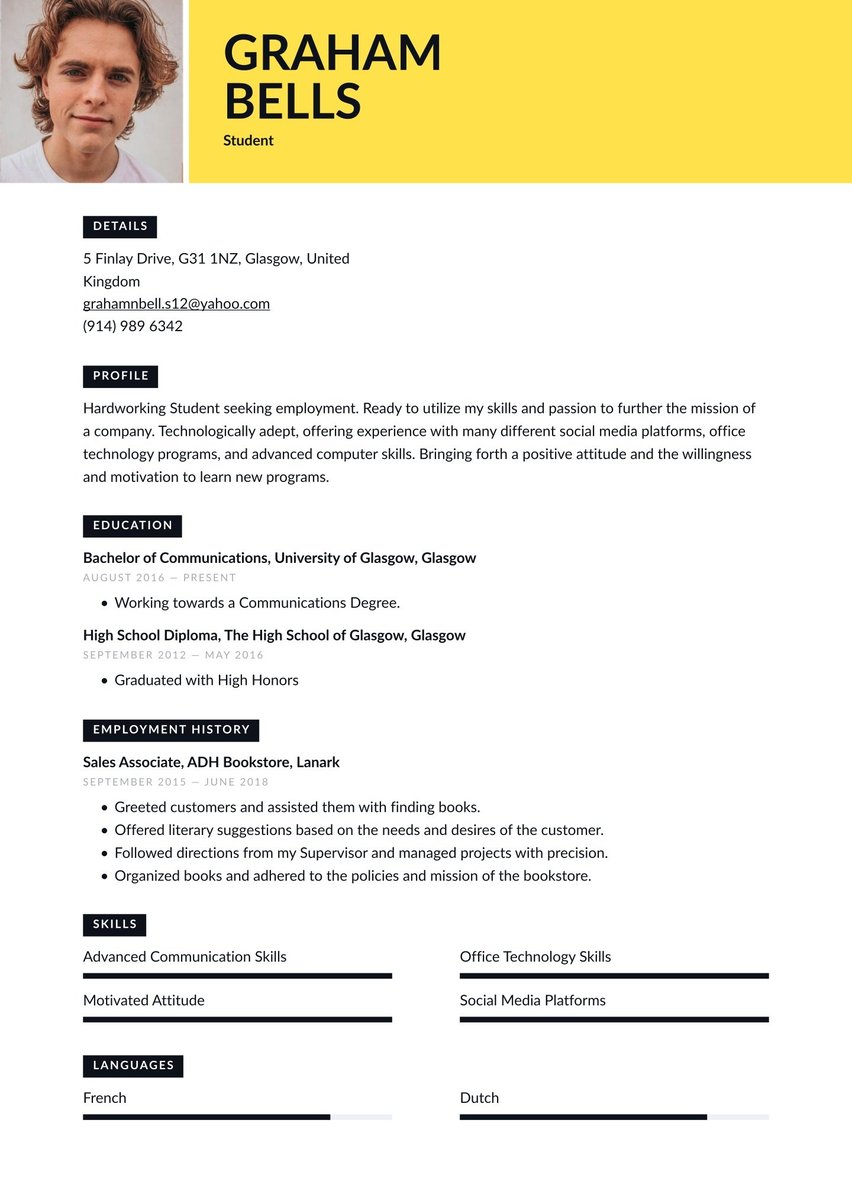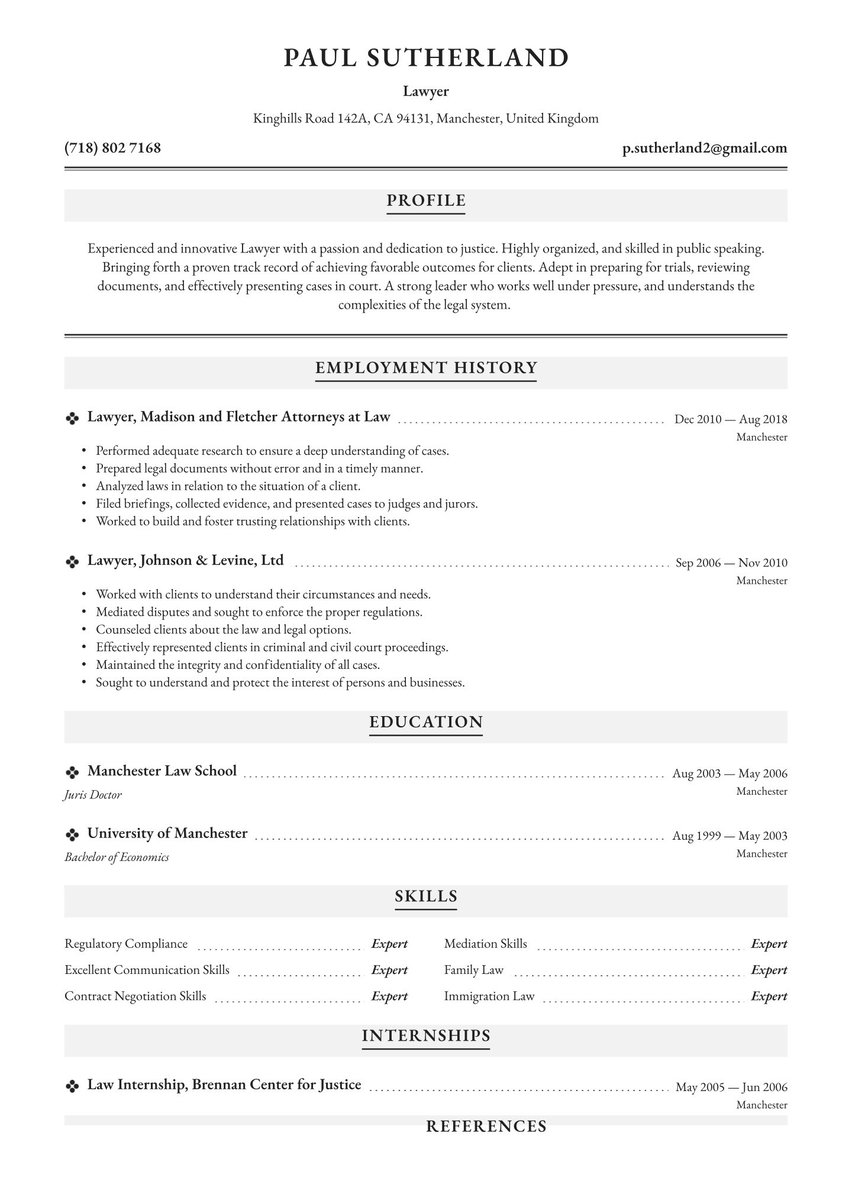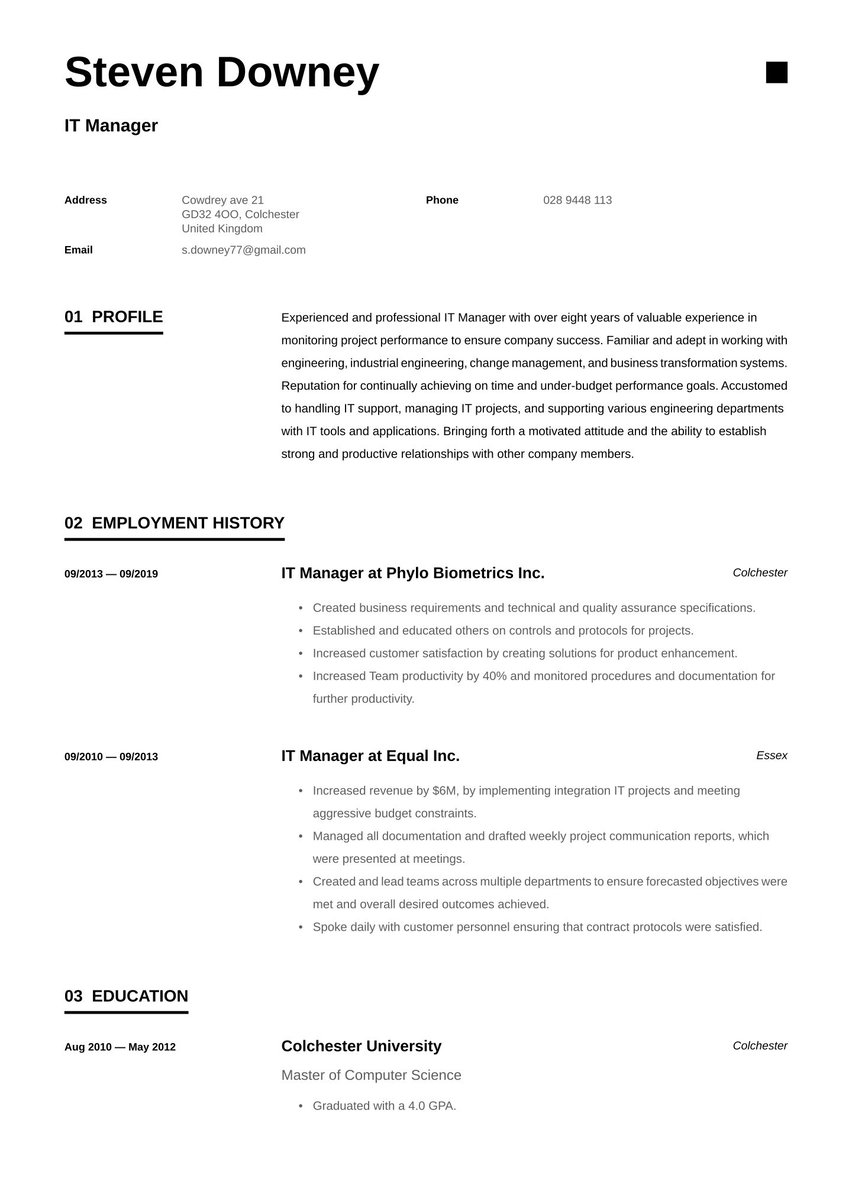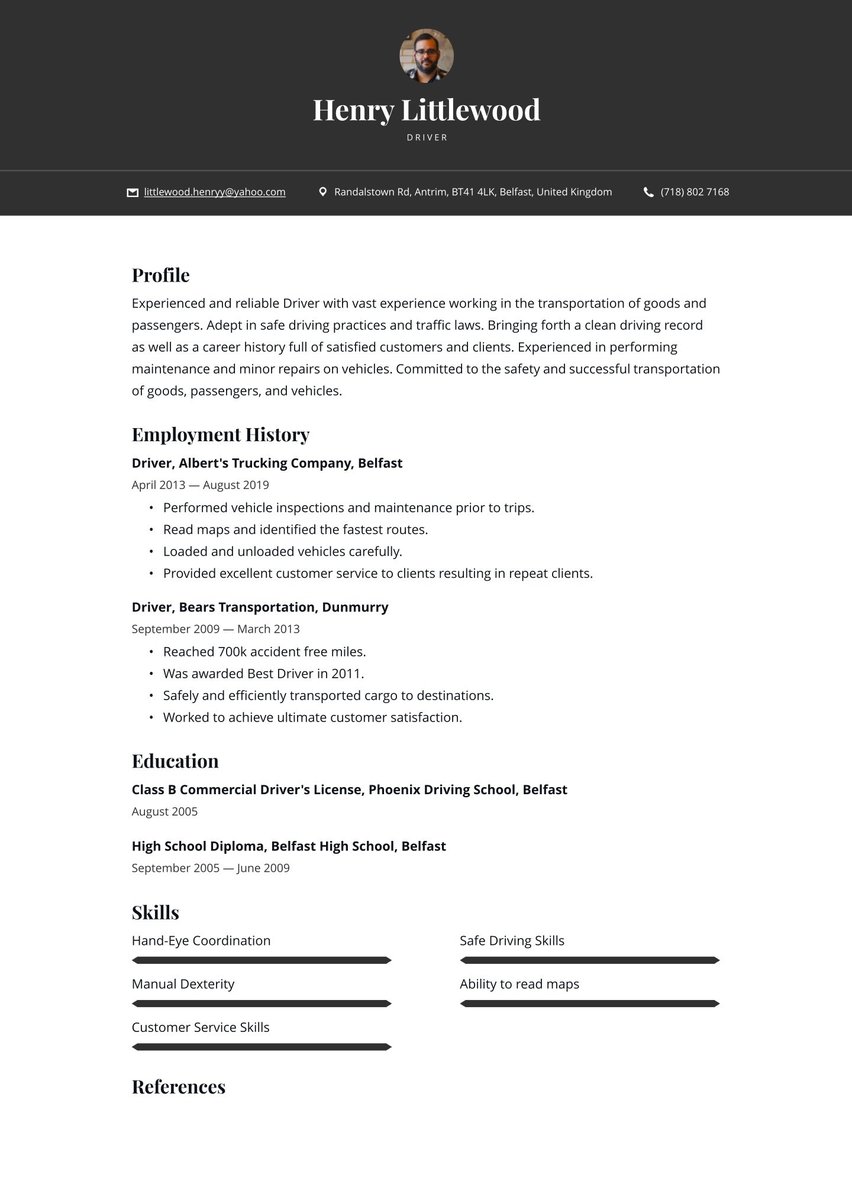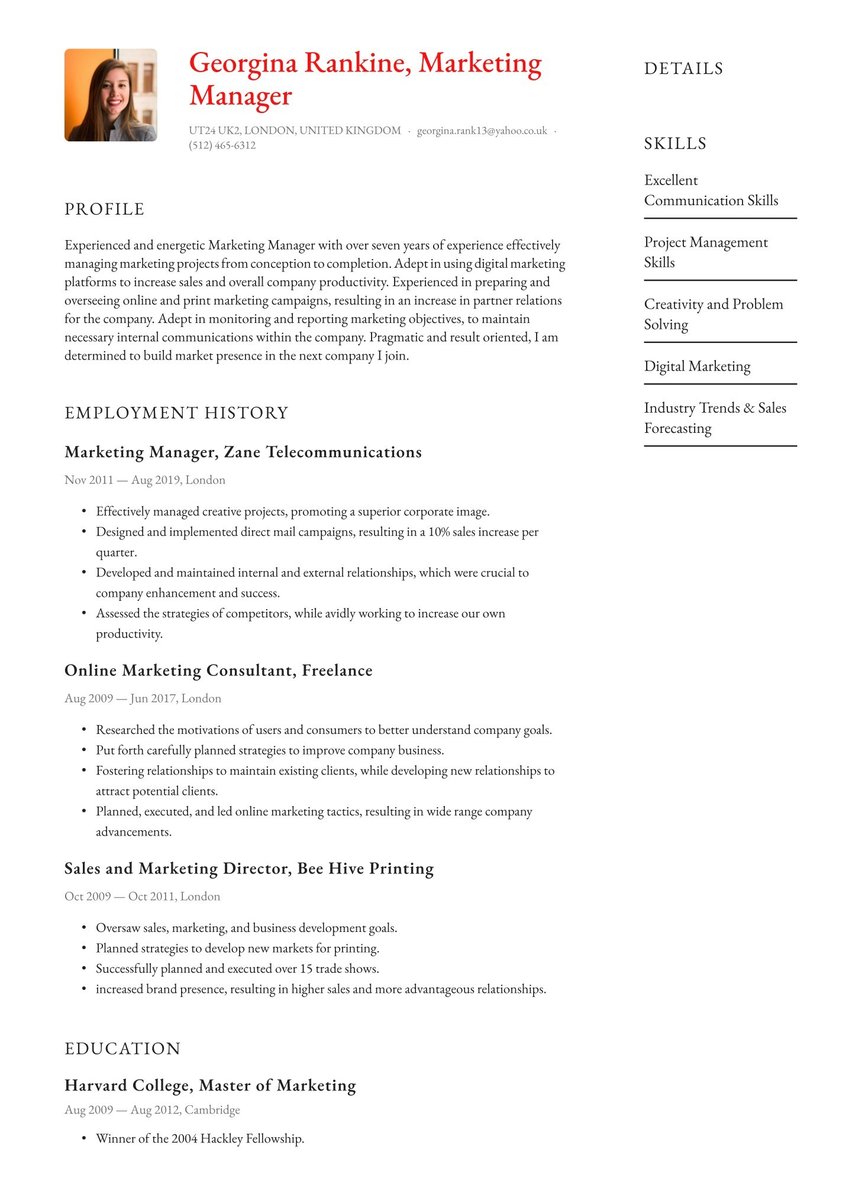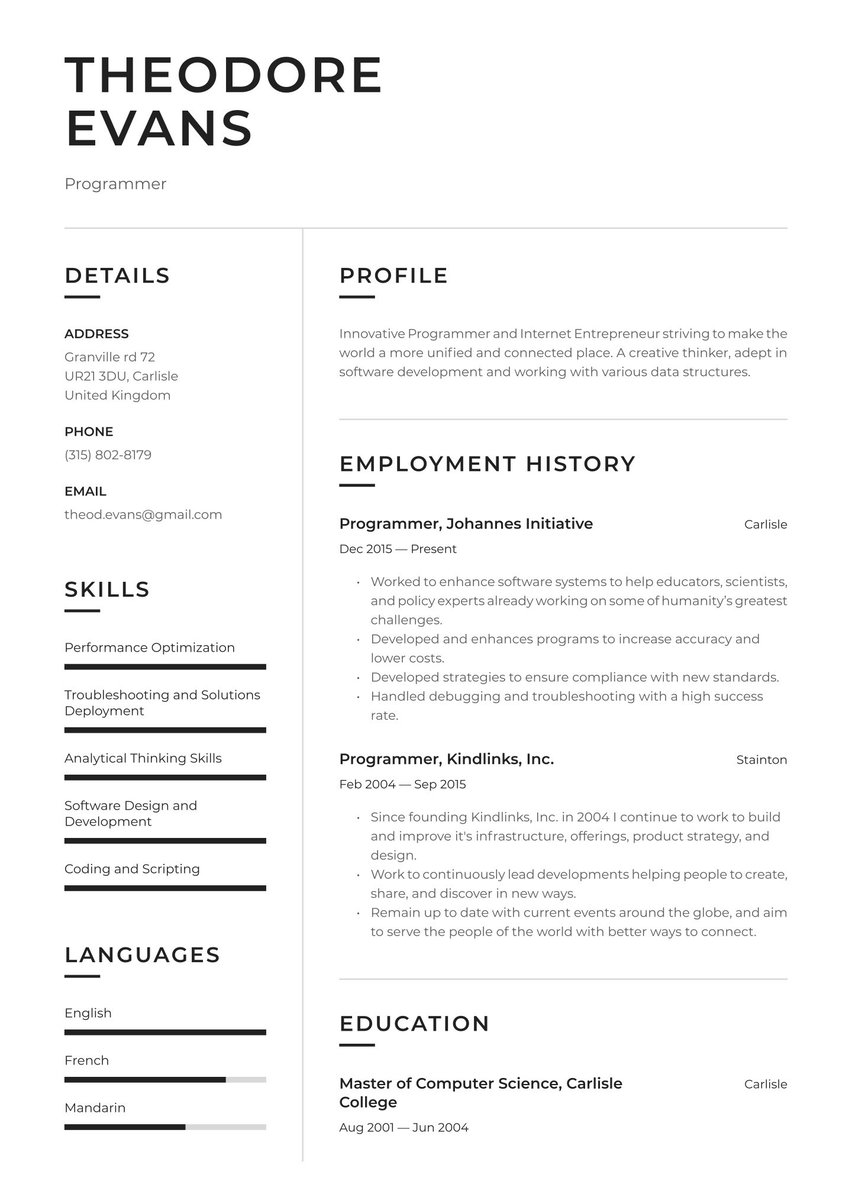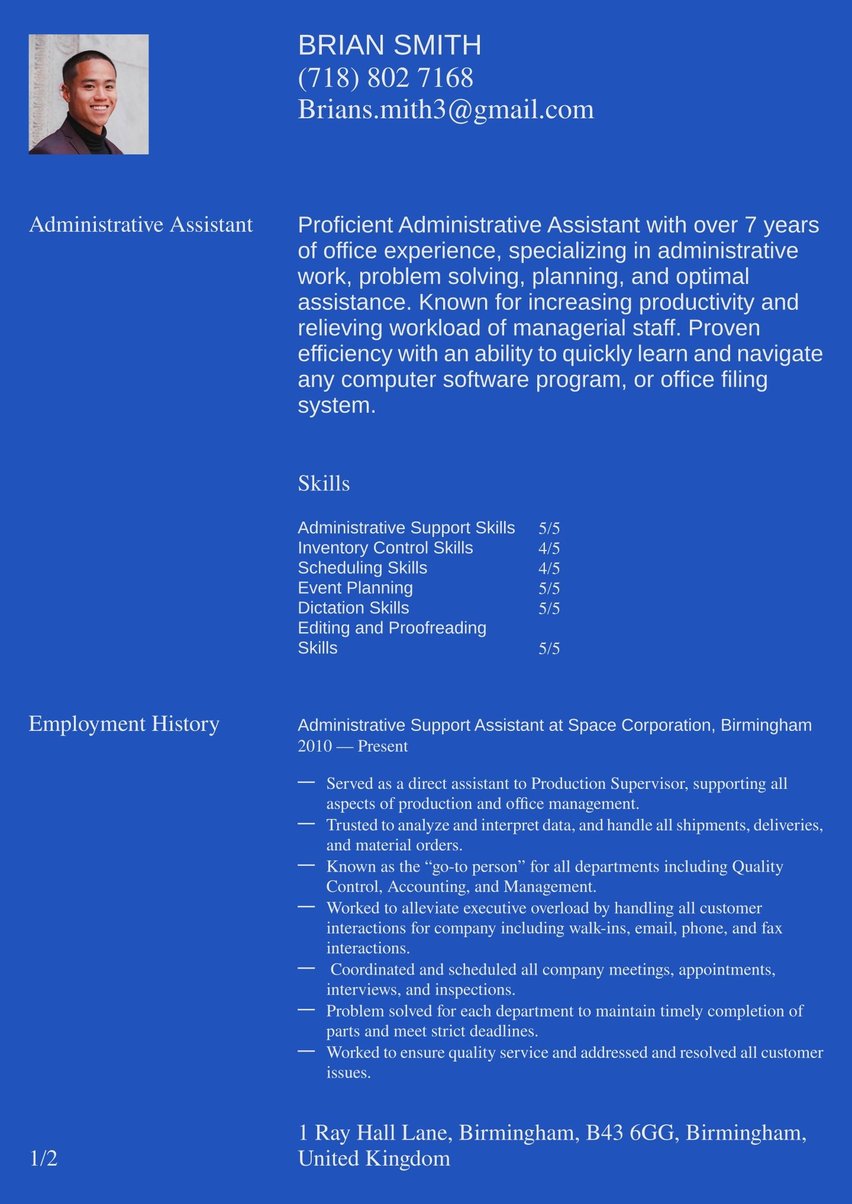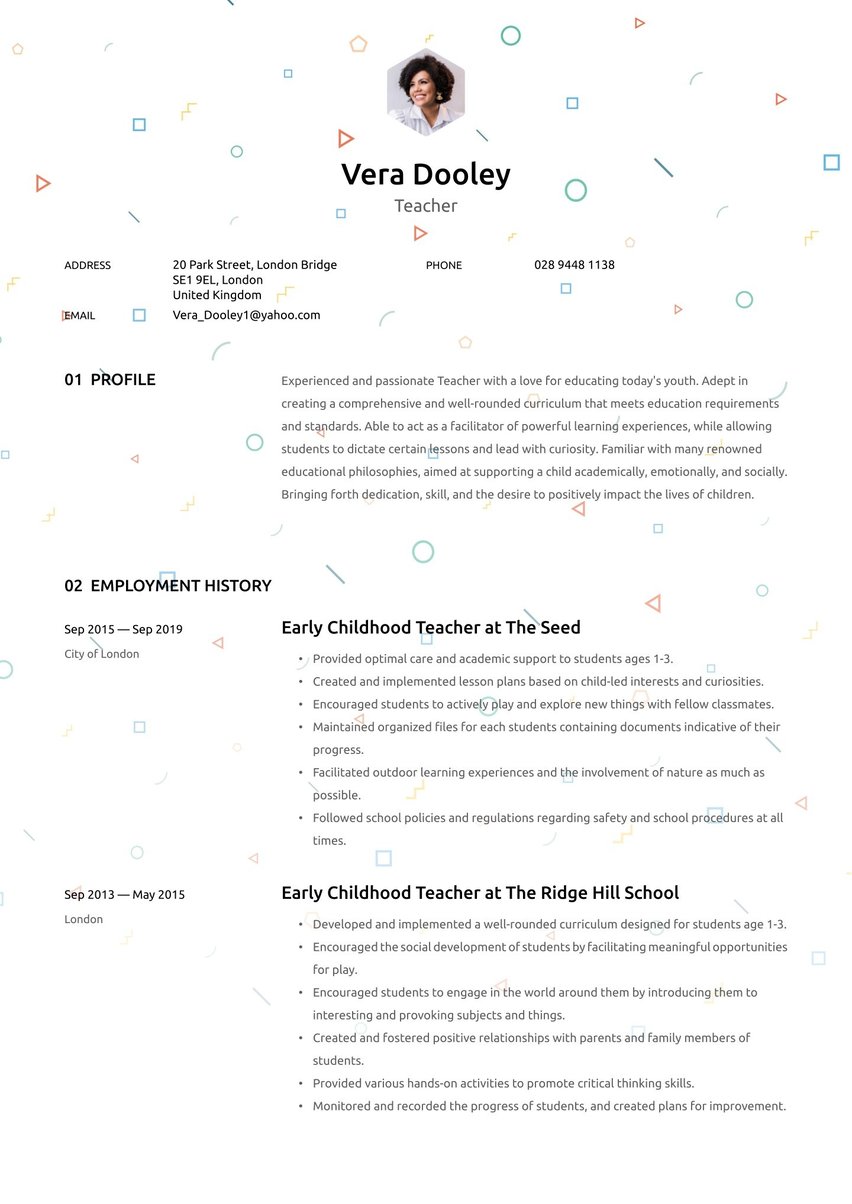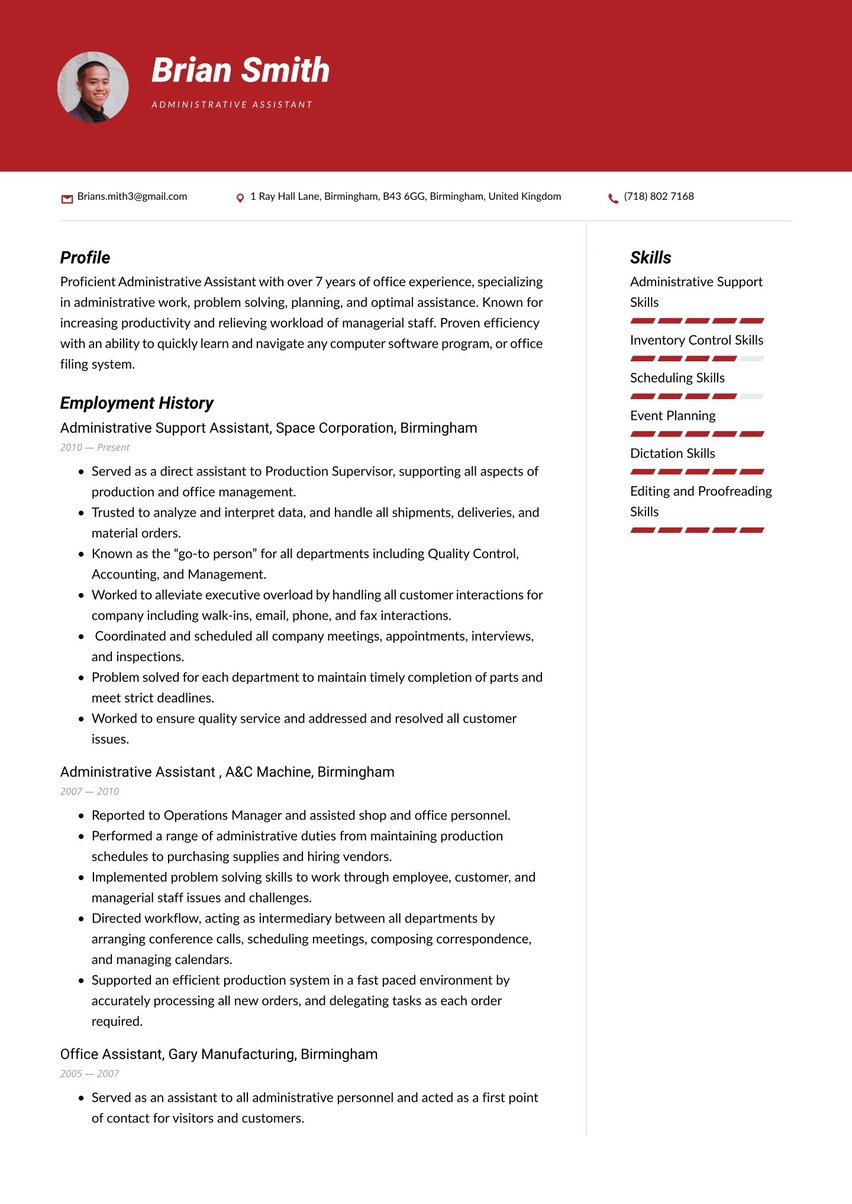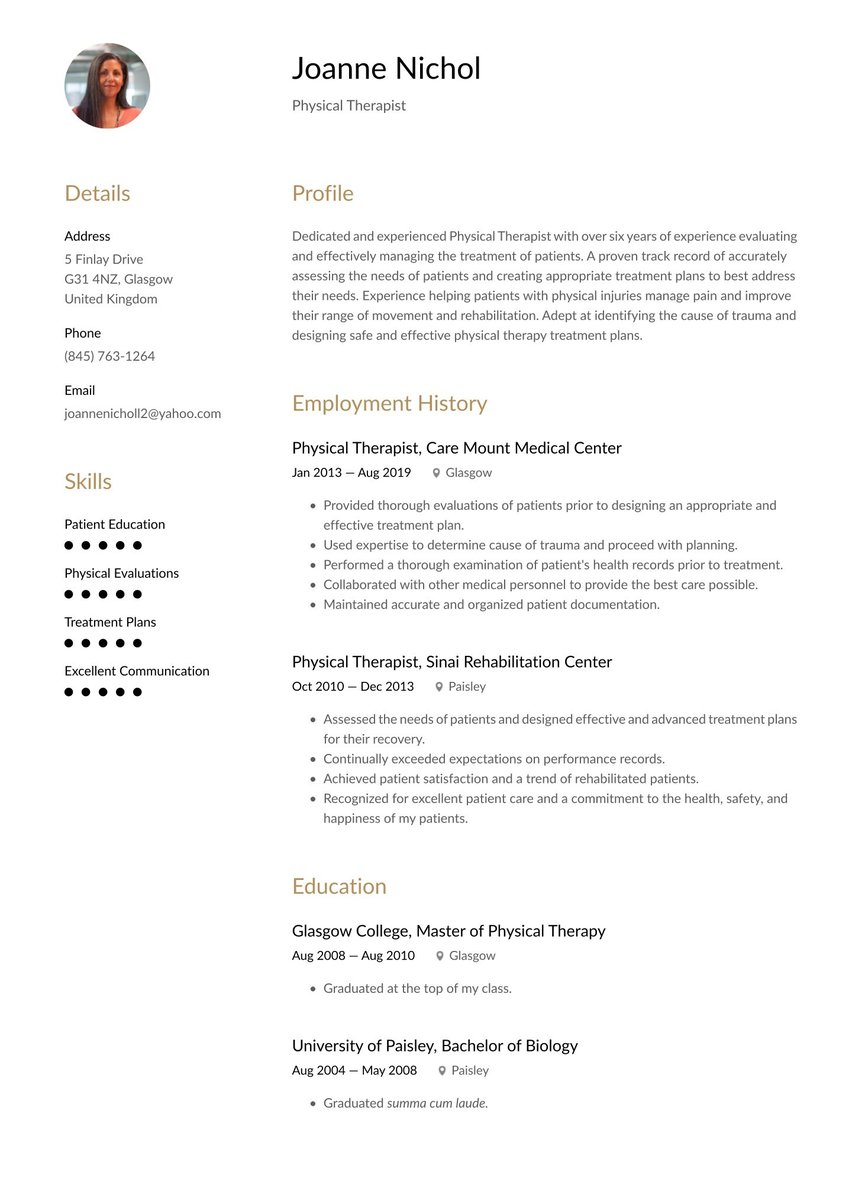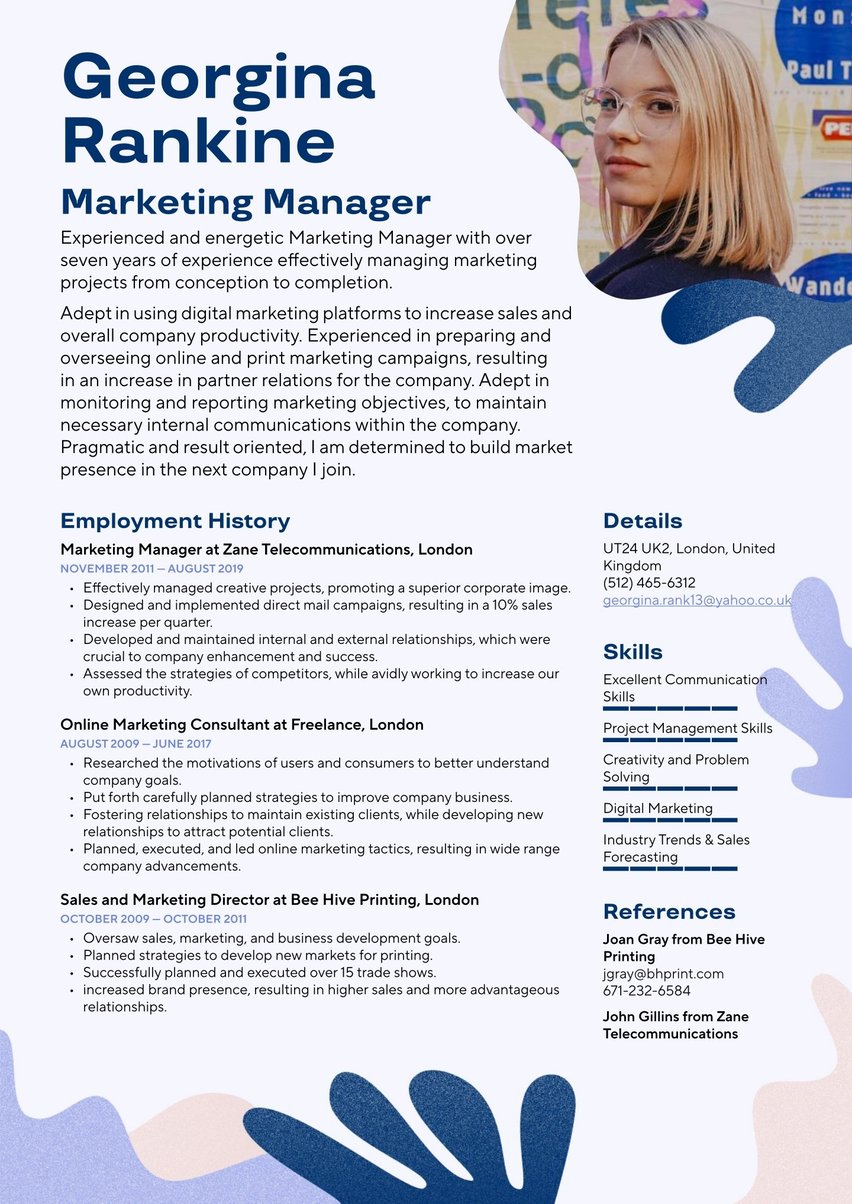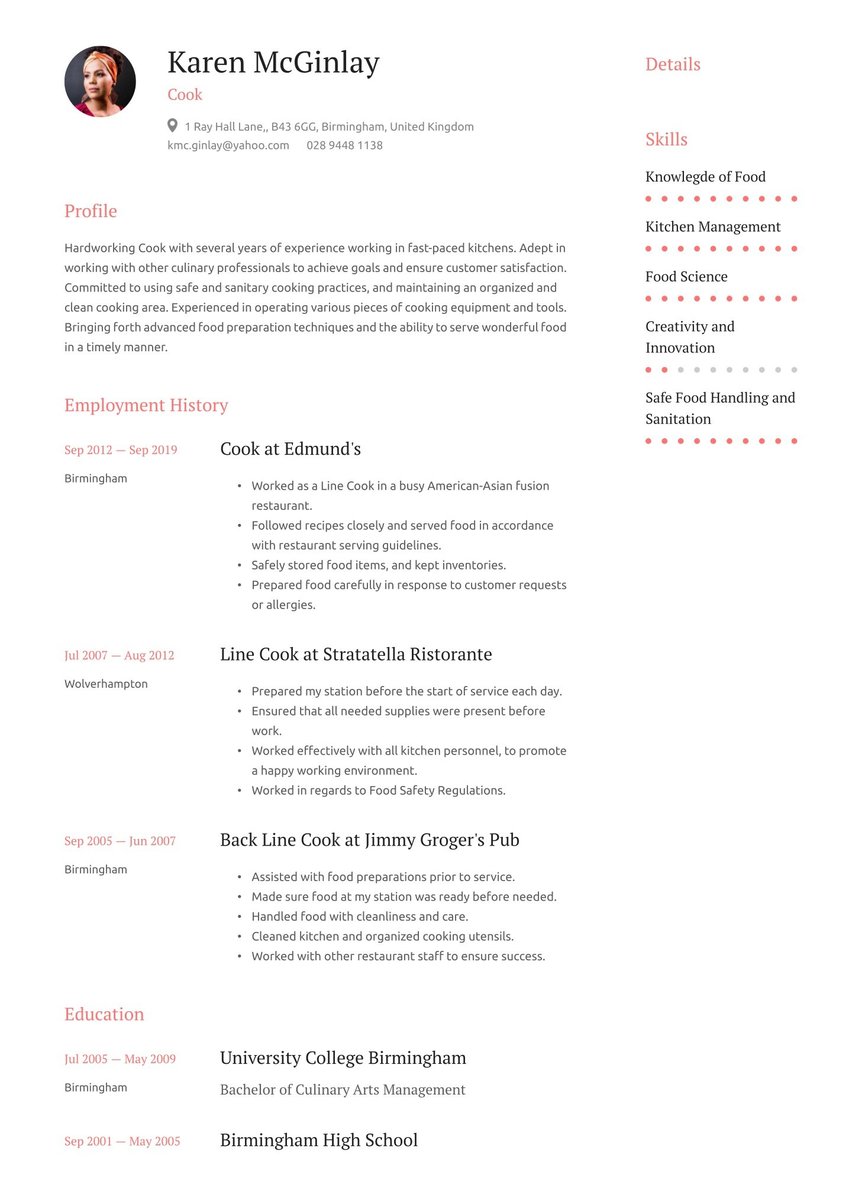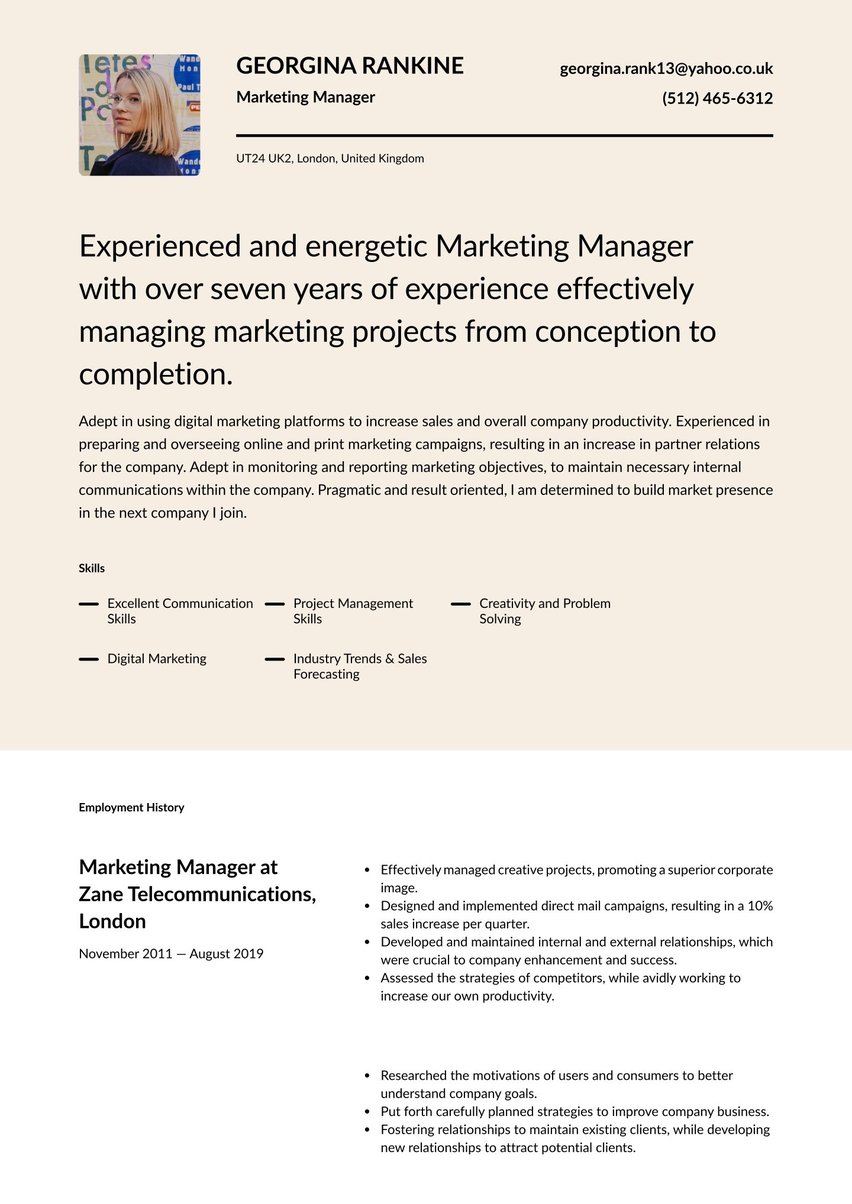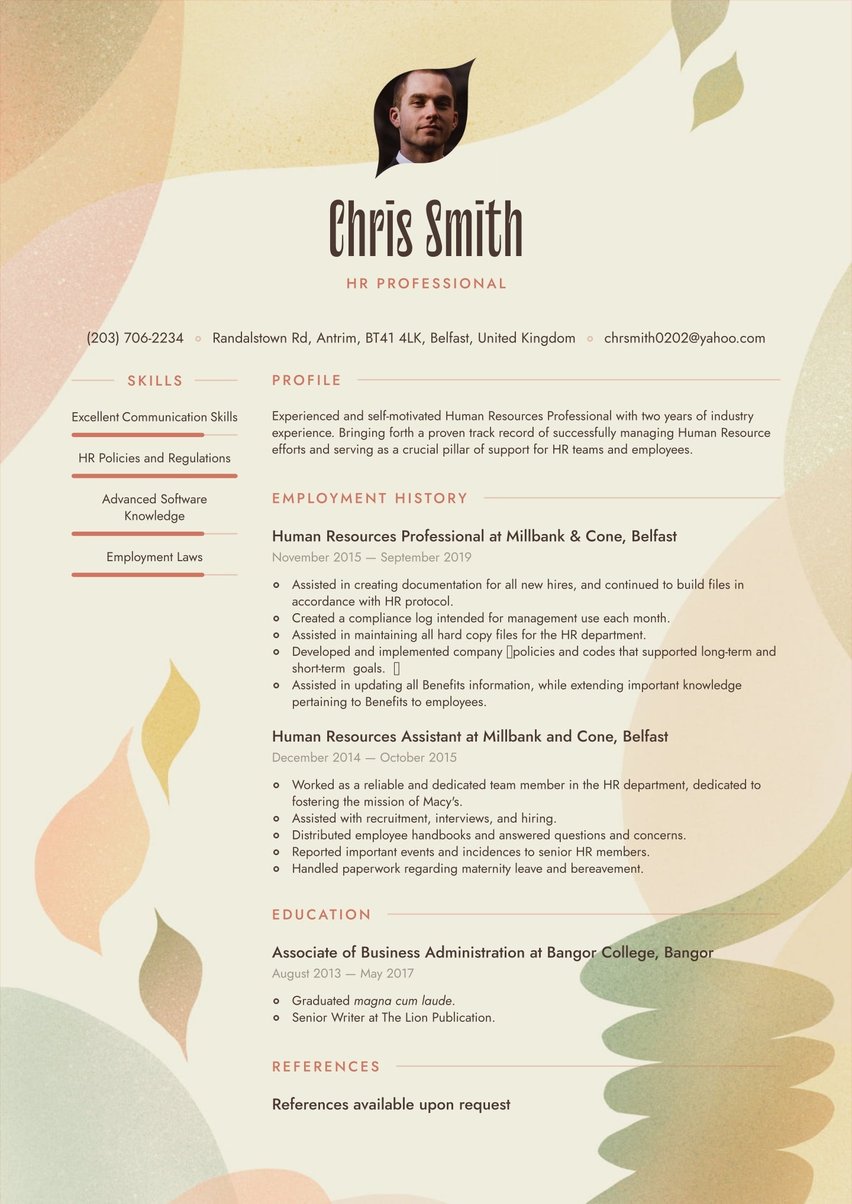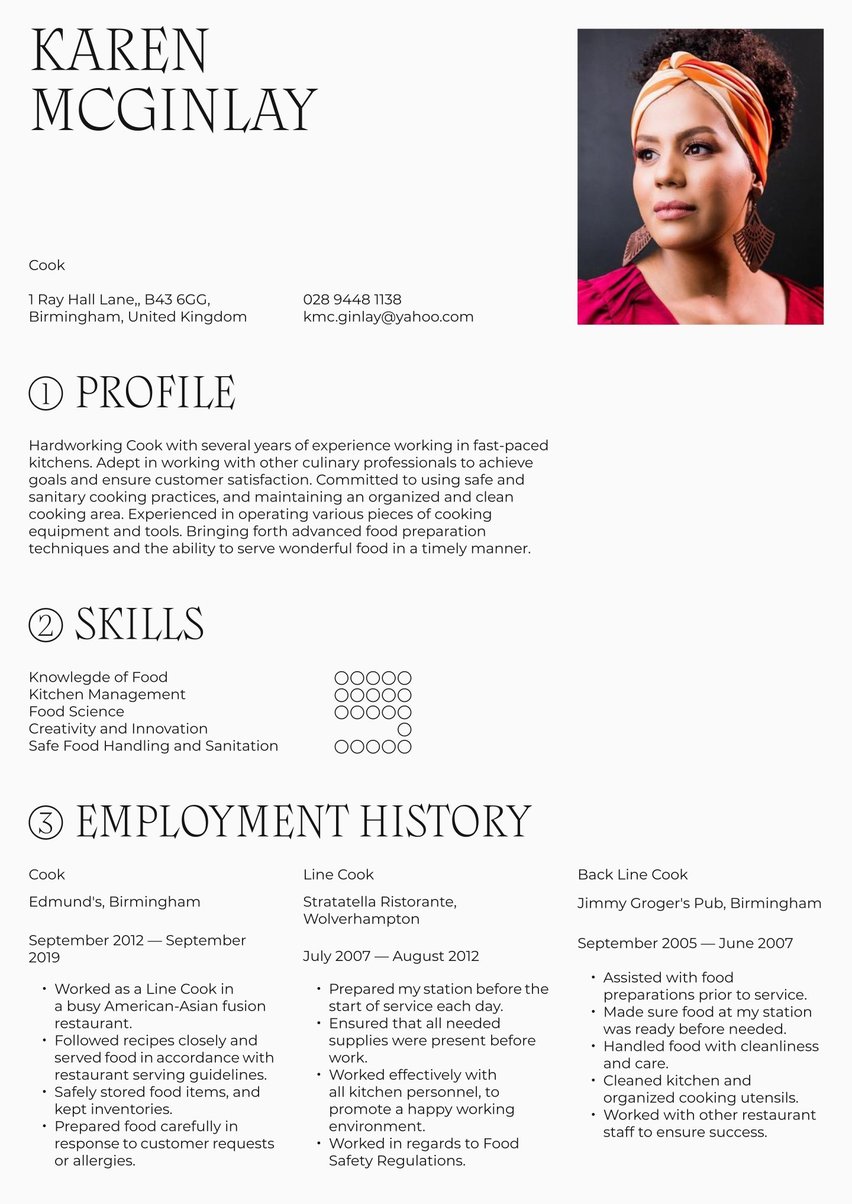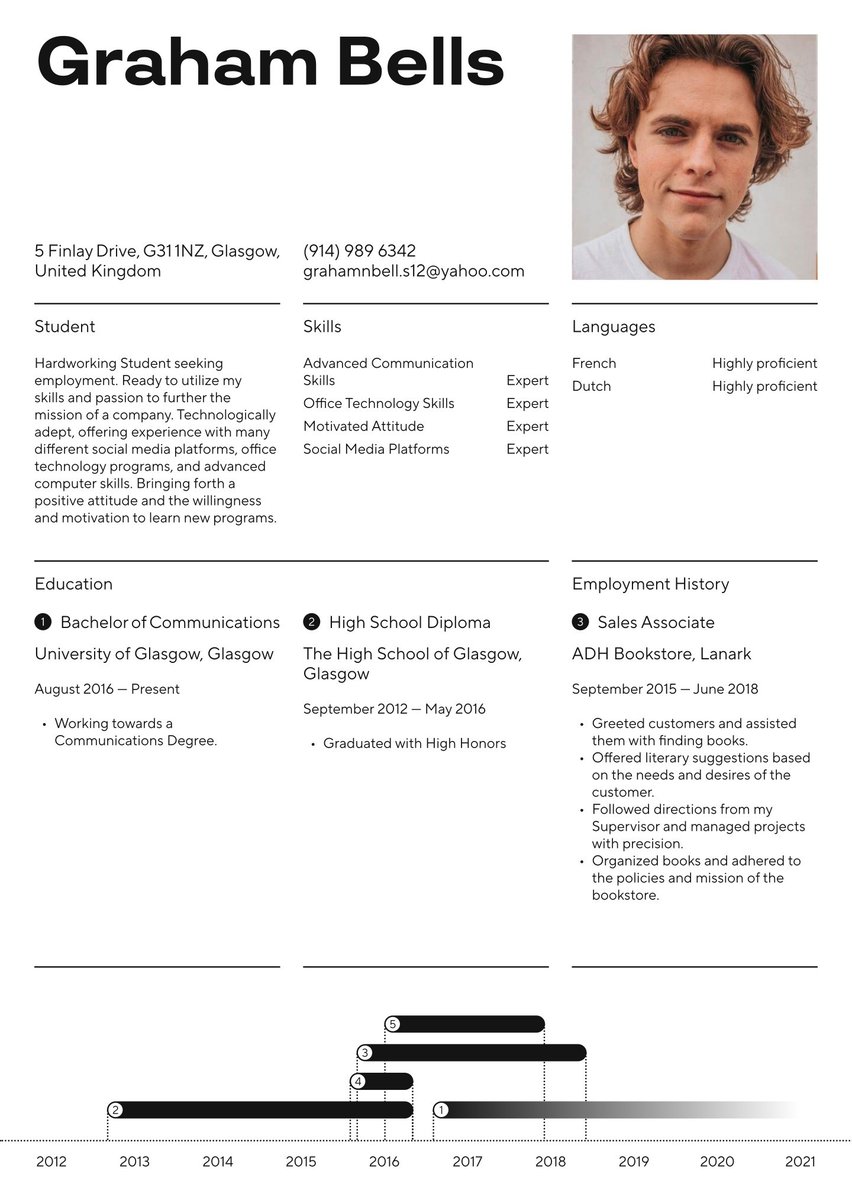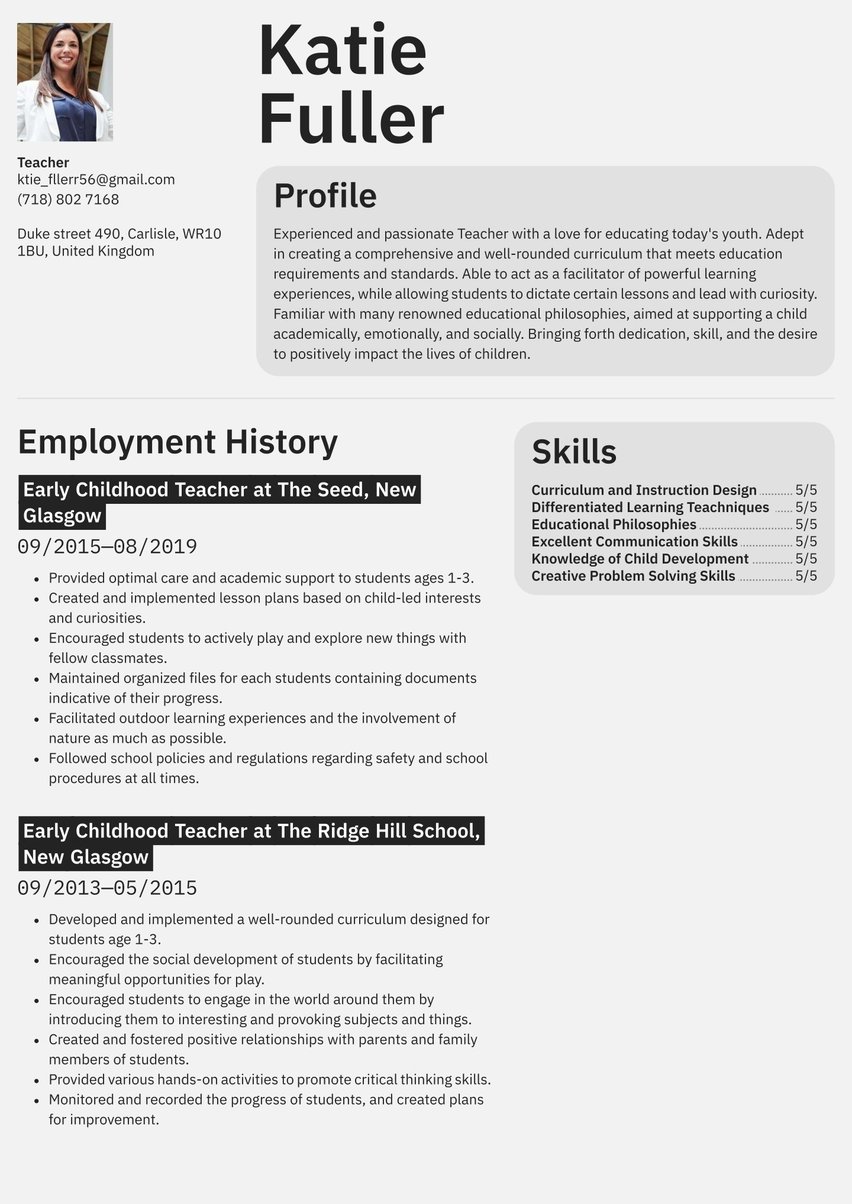Highly qualified and empathetic psychologist with 20 years of experience in providing evidence-based psychological assessments and interventions. Dedicated to promoting mental well-being and helping individuals overcome challenges. Skilled in working with diverse client populations across various settings, including clinical, educational, and organizational contexts.
02/2012 - present, Senior Psychologist, York Hospital NHS, York
- Conducted comprehensive psychological assessments and developed individualized treatment plans
- Provided evidence-based interventions, including cognitive-behavioral therapy (CBT) and psychodynamic therapy
- Collaborated with multidisciplinary teams to ensure holistic patient care
- Supervised junior psychologists and trainees, providing guidance and support
- Contributed to service development and quality improvement initiatives
- Proficient in administering and interpreting a wide range of psychological assessments
- Skilled in delivering evidence-based psychological therapies
- including CBT
- DBT
- and EMDR
- Excellent communication and interpersonal skills
- Strong problem-solving and decision-making abilities
- Experienced in working with diverse client populations and presenting issues
As a psychologist, excellent verbal communication skills are paramount. But when you’re on the hunt for your next psychologist role, you’ll need to convince the hiring manager that you’re the best person for the role before you get a chance to speak to them. What is the best way to do that? By writing a top psychologist CV.
Your CV is the best tool you have to show off those skills to potential employers. With only two pages to capture the compassion, patience and sensitivity that goes into your profession, every single word counts.
Accomplishing this is easier than it sounds. Whether you’re writing a clinical psychologist CV, a counselling psychologist CV, or a CV for an assistant psychologist, the same rules apply. All it takes is applying some tips and tricks of the trade, and in no time you’ll be crafting a top CV.
CV guide for a psychologist CV
With a nudge in the right direction, you can craft a CV that will take you where you want to go in no time. At Resume.io, we know a thing or two about landing an ideal job. With a range of guides and CV examples that span over 150 professions, as well as a CV builder, we’ve got the resources you need to ensure success.
This CV guide and corresponding psychologist CV example will cover the following:
- How to write a psychologist CV
- Choosing the right CV format for a psychologist
- How to add your contact information
- Using summaries
- Adding your psychologist experience
- Listing education and relevant experience
- Picking the right CV design/layout
- What the psychologist market looks like, and what salary you can expect
How to write a Psychologist CV
The first step in writing your psychologist's CV is understanding what sections to include. Your CV should contain the following elements:
- The CV header
- The CV summary (aka profile or personal statement)
- The employment history section
- The CV skills section
- The education section
Selling your skills and value might not come naturally to you as a psychologist, but this is precisely what you need to do when applying for a job. Trust us, it’s not the same thing as boasting. Think of how you approach your first session with a new client. Gaining insight into their needs is the first step so you can understand how to help them.
Preparing your CV content is no different. In practice, that means researching the place of work you’re applying to and adjusting your content accordingly to fit what potential employers are looking for.
Need a helping hand getting started? These are our tips to help get your foot in the door:
- Highlight your wins. Focus on what you have achieved so far in your career as opposed to your daily duties. Employers will want to know about any meaningful impact you had in previous roles, as they’ll be putting their trust in you to support a range of clients.
- Tailor your CV to the job. Give every CV you submit a personal touch. Think of your CV as the pitch for your professional profile to each specific employer you apply to. Adjust the style, tone and even the examples of accomplishments on each version of your CV.
- Make it workplace-worthy. Communicate professionalism from the get-go with a CV template that’s polished and modern.
- Speak to the algorithm. Optimise your CV’s content so it’s ATS foolproof and always lands on a hiring manager's desk.
Optimise for the ATS
Optimising your CV content is one of the most simple and worthwhile steps you can take to guarantee the hiring manager will give your job application the attention it deserves.
ATS stands for Applicant Tracking Software. This algorithmic software scans job applications for the presence of certain keywords. Applications that don’t rank highly enough for the presence of these keywords are filtered out and won’t make it into the hands of human hiring staff.
To get around this issue, read through the job description carefully, identify the keywords present, and ensure they’re included in your CV. From there, you can let your hard work do the talking.
Here are some samples of keywords you could expect to see in the job description for a psychologist, depending on the type of role:
- Patient conditions. Neurological disorders, learning disabilities, or other mental health conditions that are mentioned in the job description should be explicitly mentioned on your CV if you have experience with them.
- Clinical, forensic, psychotherapy. Don’t forget to specify what type of psychological professional you are and aim to match the language you use to how it is referred to in the job posting.
- CBT, psychodynamic, or EMDR therapy. Mention explicitly the frameworks, methodologies, or philosophies of psychology that you are familiar with. This is especially important if it’s mentioned in the job ad.
- Applied research. Contributing to the wealth of evidence supporting your area of expertise is a valuable skillset. If the job demands it and you have relevant experience, then find a way to talk about it. Even if it is limited to your educational training.
Choosing the right CV format for a psychologist
The right CV format gives your content the best foundation to shine. Generally, a psychologist’s CV should follow the reverse chronological format. This will put your employment history section front and centre for employers.
Your experience should be listed in reverse chronological order and clearly present the story of your career up until now.
If your previous work experience isn’t the selling point of your CV, for example, if you are new to the workforce, you could consider changing things up and opting for the functional format. With this format, you’ll be able to draw attention to your skills and place less emphasis on your employment history.
Regarding visual design, your psychologist’s CV should have a modern and clean layout. This will show that you’re a trustworthy professional who means business and will prioritise the readability of your CV’s content for the hiring manager.
For more design inspiration, we have a range of CV templates in our CV builder that can help you to speed things along.
Include your contact information
While there will certainly be more impressive content in your CV, don’t overlook the importance of your CV’s header. Impressed employers will want to reach out.
Don’t fall at the last hurdle, and make sure your contact information is easy to find and error-free.
- Full name and title. List your first and last name. Also, include the name of the role you are pursuing.
- Professional email address. You won’t be taken seriously with an unprofessional email address. Use a clean format instead like firstname.lastname@gmail.com.
- Phone number. List an up-to-date number where you can be readily contacted. Your voicemail should also have a professional greeting.
- Location. Only list your city. Avoid listing your full address and postcode, as this practice is now considered outdated and unsafe. Note 'Willing to Relocate' here if applicable.
- LinkedIn. Include your LinkedIn profile, but ensure it is up to date before you do.
Don’t include:
- Date of birth: Listing your date of birth is not necessary and comes with the risk of potentially facing age discrimination.
- Personal details: Your marital status, social security number, passport number, etc, are all sensitive pieces of information that don’t need to be on your CV.
Clarissa Miles
Psychologist
07446821993
clarissa.miles@email.com
Clarissa Miles
Resident shrink
07446821993
clarry_smiles88@email.com
Make use of a summary
A huge part of your role as a psychologist is building a safe environment for your clients to express themselves. That means presenting yourself as self-assured, competent, and deserving of that trust.
You can’t build trust with patients without first winning the trust of potential employers. Your CV summary is your opportunity to invite employers to view these key strengths in two to three sentences.
Keep your sentences snappy and to the point by employing action verbs. This trick will help you to communicate your desirable skills and ability to obtain results. For psychologists, useful action verbs could include “support”, “resolve”, “help”, and even “research”.
Ultimately, your CV summary should give hiring managers a reason to read on. They’ll likely have a stack of applications to work through, so hooking their attention and inspiring confidence in your abilities is a must.
Writing the perfect CV summary isn’t necessarily something you’ll get right on the first draft, so don’t be afraid to create a few different versions until you land on something you feel encapsulates what you want to convey.
Whether you’re writing a psychologist or an assistant psychologist CV example, for some inspiration to help get you started, you can look at our related CVs, including our:
Check out some adaptable psychologist CV example summaries below:
Qualified and compassionate psychologist with 2 years of experience working in private practice. Strong communicator with commitment to ethical framework and dedicated to creative problem-solving with clients. Experienced in delivering CBT and mindfulness-focused therapies.
British Psychological Society accredited psychologist with 5 years of experience working with PTSD patients in clinical settings. Specialised in complex trauma responses. Expertise in supporting patients through personalised CPT and EMDR treatment plans.
Psychologist with 10 years of experience working in high-security mental health ward setting. Expertise in delivering long-term treatment plans to high-risk patients and facilitating transition to outpatient services. Specialised in delivering CPT and EMDR therapies.
Outline your psychologist work experience: your career journey
When listing this experience on your CV, remember to use the reverse chronological CV format. Your most recent job should be at the top of the section. You should then work your way backwards. For each job role, you should include a subheading featuring the job title, dates of employment, name of employer, and location.
Underneath this subheading, you can list several bullet points highlighting your contributions to the role. Make the most of the space in this section to describe how your behaviour at work helps you stand out as a candidate.
You wouldn’t respond to your clients by using weak, vague statements. So steer clear of them in your writing, too.
How much experience is too much?
If you’re extremely experienced, include only the last 10-15 years of work. Most importantly, how you detail each role should be curated with its relevance to this particular role.
For psychologists who haven’t worked in the field that long, when detailing previous roles, you may need to lean on transferable skills that you could bring to the position and your enthusiasm for the job.
Think about how you’ve grown professionally in previous roles and specific moments in your career that you’re proud of. These should be moments that this particular employer would also value.
This will professionally communicate both your commitment to your development and your eagerness to continue contributing to a new workplace.
For a clearer idea of what a psychologist’s employment history could look like, take a look at the psychologist CV sample below:
Senior Psychologist at York Hospital NHS, York
2012 - Present
- Conducted comprehensive psychological assessments and developed individualized treatment plans
- Provided evidence-based interventions, including cognitive-behavioral therapy (CBT) and psychodynamic therapy
- Collaborated with multidisciplinary teams to ensure holistic patient care
- Supervised junior psychologists and trainees, providing guidance and support
- Contributed to service development and quality improvement initiatives
Include the relevant key skills that make you a great psychologist
Your skills as a psychologist will be much more than the knowledge accumulated throughout your degrees and specialisations. That’s why it’s good to have a mix of both hard and soft skills in your psychologist CV skills section.
Based on the job description, you can decide whether to weight your skills list to hard or soft skills. Whichever ones the hiring managers are looking for, in particular, should always have the top spot in your skills list.
Some skills that employers may want psychologists to have could include:
- Active listening skills. Your patients will want to feel heard and that you’re invested in making a difference in their lives through your sessions with them.
- Analytical skills. Even the best listener needs to be able to interpret what a client is telling them in order to help them. Analytical skills will be important in your job duties outside of patient sessions, too.
- Knowledge of particular psychology methodologies. Depending on the type of workplace you are applying to, certain technical skills could be important to list, too.
With so many skills that are integral to performing your daily tasks well, it can be tempting to include them all. However, with the limited space in your CV's two pages, include only the most pertinent skills based on the job description. This way you will impress both the ATS and the hiring manager.
Look at what we came up with in our psychologist's CV skills box below.
Key Skills and Proficiencies
Detail your education & relevant psychologist certifications
Education is fundamental when it comes to becoming a psychologist. That means that listing the necessary qualifications on your CV is not optional. Using reverse chronological order, list your undergraduate degree and your postgraduate qualification if you have one.
If you decide to list any qualification, training, or certification, include the name of the qualification, the name of the institution, your attendance dates, and the location.
If you require a DBS check—for instance, if you work with children or vulnerable adults—you may choose to include it alongside your certifications, in your skills section, or in your CV summary.
Some examples of training or qualifications you may include on your psychologist CV could include:
- Undergraduate degree. This may be a BSc psychology, or you may have undertaken a different bachelor's and later completed a psychology conversion course.
- Postgraduate degree. If you have an MSc in a certain psychological specialisation, such as educational psychology, forensic psychology, or occupational psychology, list it here.
- Research modules. If any of your qualifications had a research element that’s pertinent to the job you’re applying for, it could give you a competitive advantage. This may be true of the CV for a specialised field, such as an educational psychologist CV or a forensic psychologist CV.
Relevant study modules? Show them off!
Add the details of any study modules that are pertinent to the job description underneath the subheading relating to the corresponding qualification.
You may have extensive higher education that will take up a fair amount of space in this section, so there’s no need to include your secondary school education. The only exception is if your CV is for a higher education qualification that requires you to provide this level of information.
Take a look at our sample psychologist CV education section below.
Doctorate in Clinical Psychology (DClinPsy), Cardiff University, Cardiff
MSc in Clinical Psychology , Cardiff University, Cardiff
BSc in psychology , University of Exeter, Exeter
Pick the right CV layout and design for a psychologist
A psychologist's CV layout should echo the tone of the rest of your CV content. We recommend aiming for a clean and modern CV template to reflect the trustworthy nature of your profession. However, your CV’s appearance is an extension of your communication skills.
Consider your research into the organisation you’re applying to work at when you choose the colours and fonts on your CV. For instance, a calm and welcoming work environment could use subtle hints of green and yellow. A more sterile environment could call for a monochrome look.
There are plenty of options, so take a moment to ensure the intention of your carefully written content matches how your final CV looks, too. Finally, don’t forget to always export your psychologist's CV in PDF format before sharing it.
Quality over quantity
Picking a smaller font size to detail as much of your experience as possible will be overwhelming and render your CV far less reader-friendly. Remember to keep your font size easy to read and at a 12pt size where possible.
While graphic design may not be part of your skillset, sharing information in a considerate way should be. So, if you’re not confident about building an aesthetically pleasing CV, consider checking out our range of field-tested CV templates.
Psychologist text-only CV example
Profile
Highly qualified and empathetic psychologist with 20 years of experience in providing evidence-based psychological assessments and interventions. Dedicated to promoting mental well-being and helping individuals overcome challenges. Skilled in working with diverse client populations across various settings, including clinical, educational, and organizational contexts.
Employment history
Senior Psychologist at York Hospital NHS, York
2012 - Present
- Conducted comprehensive psychological assessments and developed individualized treatment plans
- Provided evidence-based interventions, including cognitive-behavioral therapy (CBT) and psychodynamic therapy
- Collaborated with multidisciplinary teams to ensure holistic patient care
- Supervised junior psychologists and trainees, providing guidance and support
- Contributed to service development and quality improvement initiatives
Skills
- Proficient in administering and interpreting a wide range of psychological assessments
- Skilled in delivering evidence-based psychological therapies, including CBT, DBT, and EMDR Excellent communication and interpersonal skills
- Strong problem-solving and decision-making abilities
- Experienced in working with diverse client populations and presenting issues
Education
Doctorate in Clinical Psychology (DClinPsy), Cardiff University, Cardiff
MSc in Clinical Psychology , Cardiff University, Cardiff
BSc in psychology , University of Exeter, Exeter
Psychologist job market and outlook
There is plenty of choice and flexibility in the psychology industry. Psychologists can choose to specialise in a variety of fields.
You can work towards specialising in a certain field through postgraduate study or wherever you work. This could include schools, hospitals, prisons, and private businesses.
According to Statista, in 2023, approximately 54.2 thousand clinical and other psychologists were employed in the United Kingdom. This figure includes both employed and self-employed psychologists.
What type of salary you can expect as a psychologist
Psychologists can earn anywhere between £44,000 to £55,000 annually in the UK. Many positions are 9 am to 5 pm, while others are more flexible. Many psychologists are self-employed and set their own rates.
Key takeaways for building a psychologist CV
A career as a psychologist is emotionally demanding but also a career that promises variety. A whole host of soft skills, including compassion, communication and patience, will allow you to succeed in the field. Your commitment to supporting people will lead you into a fulfilling career as a psychologist, regardless of the job setting you settle on.
Your CV’s simple design can help tie together your career story neatly for potential employers. So consider taking advantage of our online CV builder to save time and present a document you’re proud of to the hiring manager.

